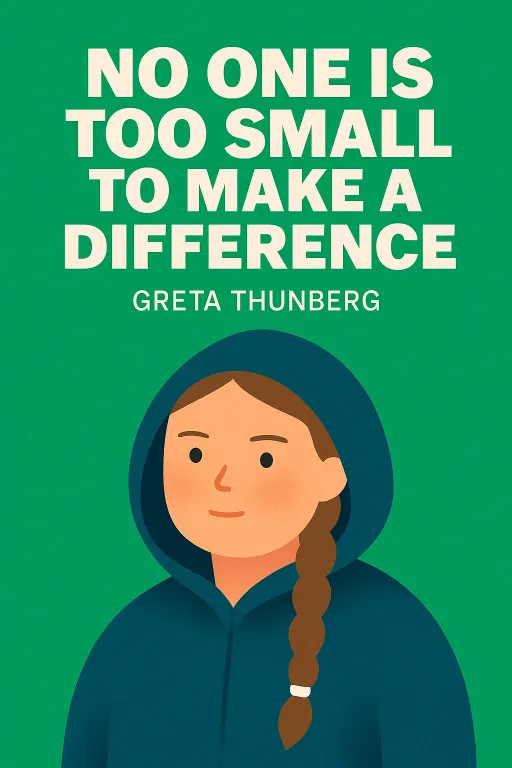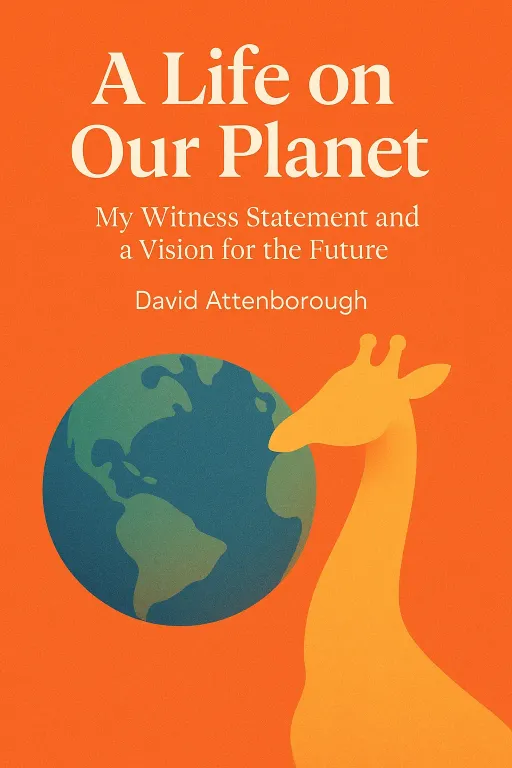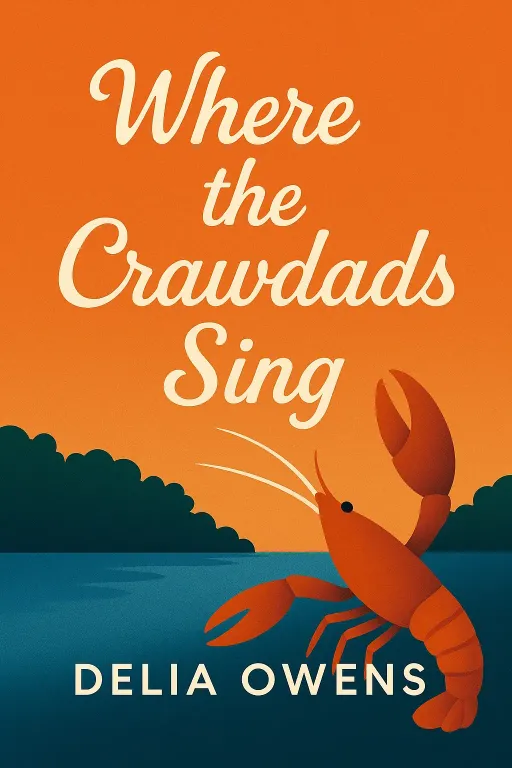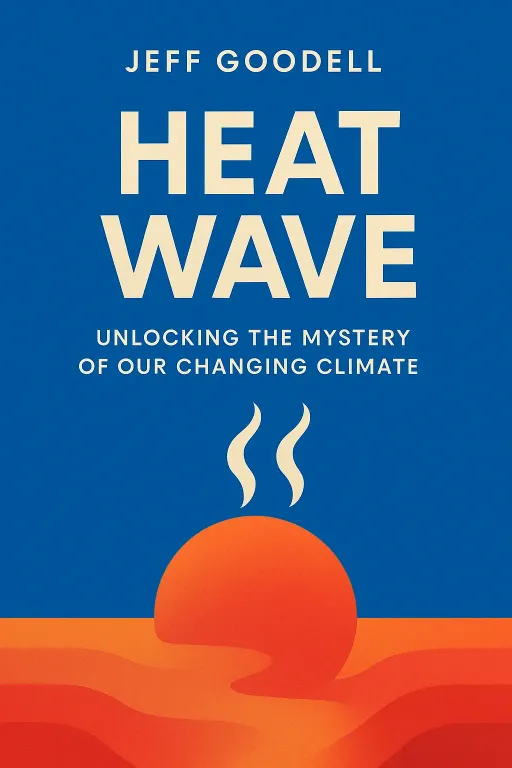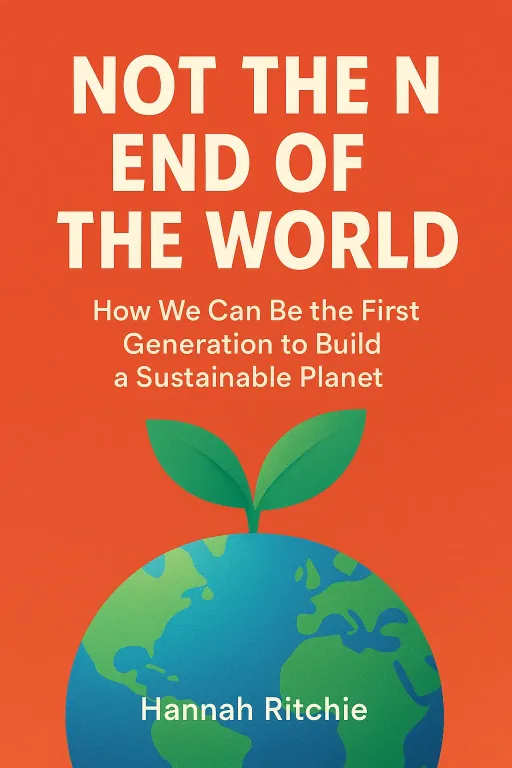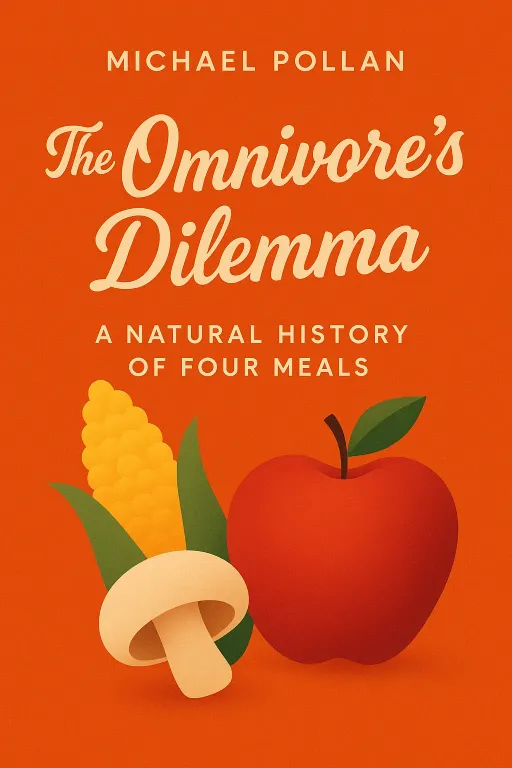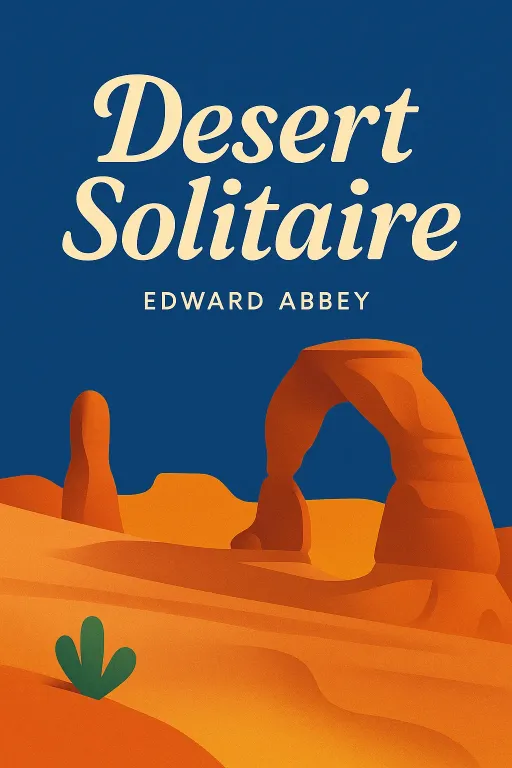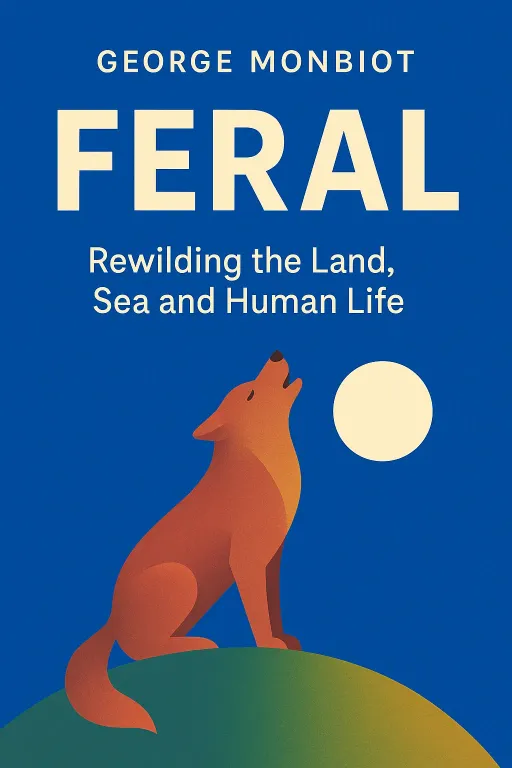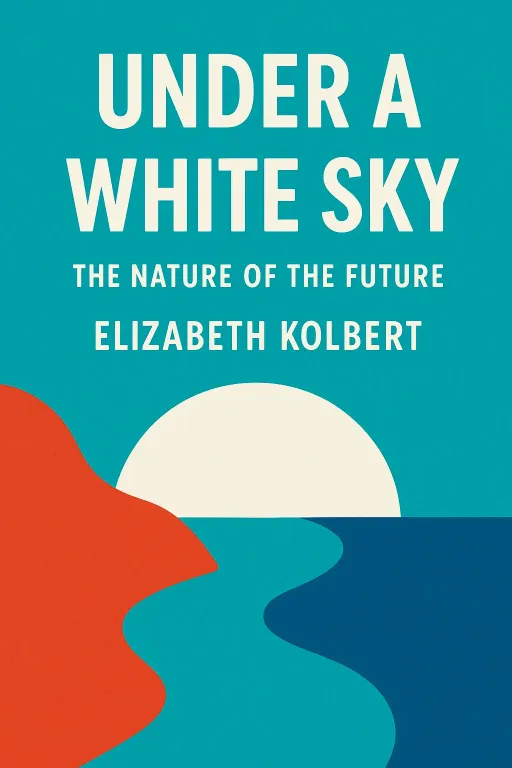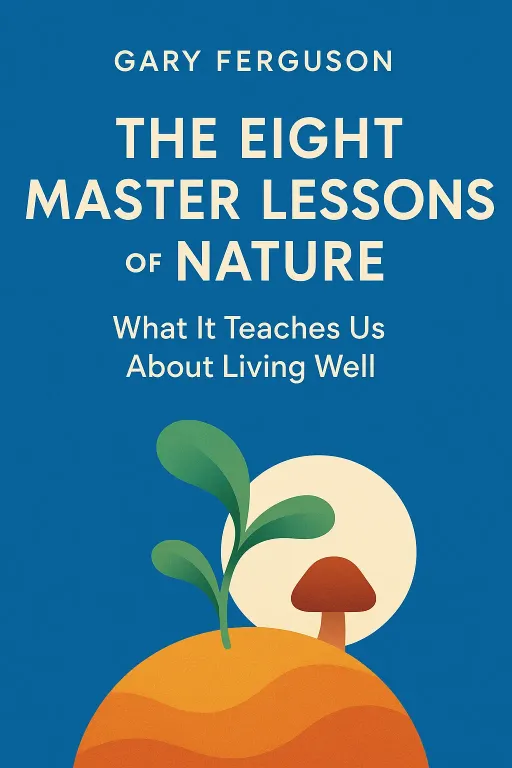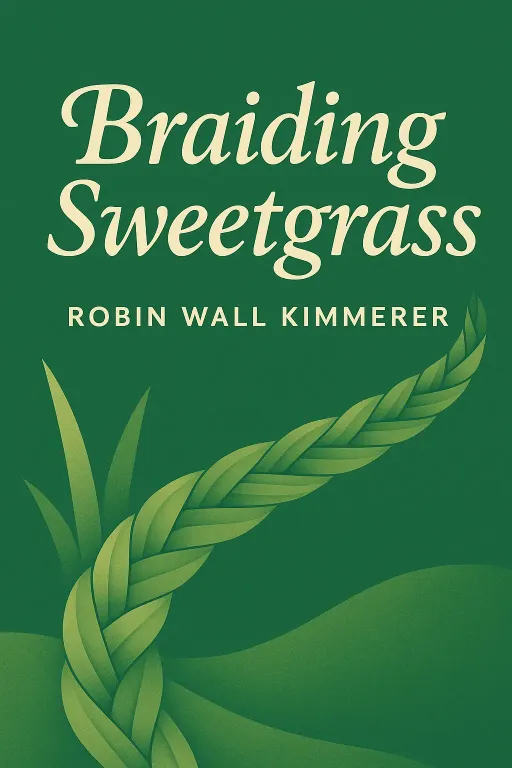
The Honorable Harvest
11 minIndigenous Wisdom, Scientific Knowledge and the Teachings of Plants
Golden Hook & Introduction
SECTION
Mark: A recent study found that the average American throws away nearly 40% of their food. But what if that waste isn't just an economic problem, but a spiritual one? What if we've forgotten the most basic rule of survival: you can't take without giving back? Michelle: That is a staggering statistic. And it feels like it gets at something much deeper than just forgetting to eat our leftovers. It feels like a symptom of a much bigger disconnect. Mark: That's the central question in Robin Wall Kimmerer's incredible book, Braiding Sweetgrass. Michelle: Which has been a massive bestseller and won major awards for nature writing. What's so fascinating about Kimmerer is her background, right? She's a PhD botanist and a professor, but she's also an enrolled member of the Citizen Potawatomi Nation. Mark: Exactly. She braids these two ways of knowing—Western science and Indigenous wisdom—into something truly profound. And she argues that our survival depends on remembering a relationship with the Earth that we've almost completely forgotten. This tension is perfectly captured in a story from her childhood about strawberries.
Two Ways of Seeing: The Gift vs. The Commodity
SECTION
Michelle: Oh, I love this story. It's so simple but it says everything. Mark: It really does. As a child, Kimmerer and her siblings would spend their summers exploring the fields behind their house. And every June, they’d find patches of wild strawberries. She describes them as tiny, jeweled, and intensely flavorful. Finding them was a discovery, a pure gift from the earth. They would lie in the grass, eating them one by one, and the experience was filled with joy and abundance. They’d gather a small jar to bring home for their father's birthday shortcake, and that gift was priceless. Michelle: It sounds idyllic. A perfect childhood memory. But that's only half the story, isn't it? Mark: Right. Because to earn spending money, she and her siblings would also go to a nearby farm owned by a Mrs. Crandall to pick strawberries for a dime a quart. These berries were huge, bred for size and transport, but they lacked the flavor of the wild ones. And the experience was completely different. Mrs. Crandall would stand over them, warning them not to eat any berries because they weren't theirs. They were a commodity. They belonged to someone else. Michelle: That's such a powerful contrast. The wild strawberries feel like magic, and the farm berries feel like… work. It's the same fruit, but a totally different world. The first is about relationship, the second is about transaction. Mark: Precisely. And Kimmerer uses this to illustrate the difference between a 'gift economy' and a 'commodity economy.' Michelle: Okay, let's break that down. 'Gift economy' sounds lovely, but what does it actually mean in practice, beyond just giving presents? Mark: In a gift economy, the value of a thing isn't in owning it, but in its movement. When a gift is passed on, its value increases, and it creates a web of relationships and responsibilities. The wild strawberries were a gift from the earth, which she then gifted to her father, strengthening their bond. The gift creates a relationship. Michelle: And the commodity? Mark: In a commodity economy, the exchange is the end of the relationship. You pay your dime, you get your quart of berries, and you're done. The berries are private property. Their value is defined by scarcity and ownership. Kimmerer argues that when we see the world as a commodity, we become poor, because everything is just a resource to be owned. But when we see the world as a gift, we become wealthy, because we are surrounded by abundance and relationships. Michelle: It makes me think of how she talks about sweetgrass, the plant the book is named for. She says you can see people selling braids of it at powwows, but elders like her friend Wally believe that once a price is put on it, it's no longer sacred. It loses its spirit. Mark: Exactly. The act of selling it turns it from a gift into a commodity, and something is lost in that transaction. The spirit of the gift is reciprocity. The earth gives to us, so we have a responsibility to give back. Michelle: Okay, so if the world is a gift, that implies we have some responsibility in how we receive it. It's not just a free-for-all. Which I think leads directly to this idea she introduces, the 'Honorable Harvest,' right?
The Honorable Harvest: A Code for Living
SECTION
Mark: Yes, the Honorable Harvest is one of the most powerful concepts in the book. It's an ancient code of conduct, a set of principles for how to take from the earth respectfully and sustainably. It’s not a list of rigid rules, but a moral compass. Michelle: And she illustrates it with another incredible story. The one about the hunter. Mark: The story of Oren, an Onondaga elder. He's out hunting, and he's a skilled hunter, he could take any deer he wants. He sees a group of does, but doesn't shoot. He sees a big buck, but lets it go. He waits. He watches. He sees ten deer in total. Michelle: Most hunters would have taken the shot long before then. Mark: But Oren is operating by a different code. He's waiting for the gift. Finally, a young buck walks out into the clearing, turns, and looks right at him. Oren says it was like they exchanged a nod. The deer offered itself. And only then did he raise his rifle and take the one shot he needed. He took only what was given. Michelle: That's a beautiful story, but it feels so far from my life. I go to a grocery store. How can I possibly practice the 'Honorable Harvest' when I'm buying plastic-wrapped chicken? Is this just an impossible ideal for modern people? Mark: That's the challenge Kimmerer puts to us. And she'd say no, it's not impossible. The principles can be adapted. She lays them out. First, never take the first one. If you see the first strawberry, the first leek, you leave it. It’s a show of restraint. Michelle: Okay, I can see that. It’s about not being greedy. What else? Mark: Ask permission. Now, you can't literally ask a plant for permission, but you can observe. Is the patch healthy? Is it abundant? Are the leeks withered, as they were on her first visit in another story? That's the plant saying 'no.' Asking permission is about paying attention. Michelle: So it’s a form of mindfulness. It's about being present and seeing what's actually there, not just what you want to take. Mark: Exactly. Then, take only what you need. Nanabozho, the great Anishinaabe hero, learned this the hard way when he took too many fish and they all rotted. We see this lesson ignored everywhere today. Think back to that 40% food waste statistic. Michelle: It’s a direct violation of that principle. Mark: Absolutely. And finally, use it respectfully, minimize harm, and most importantly, give a gift in return. Reciprocate. This doesn't have to be a physical offering of tobacco, though it can be. It can be composting, planting a garden, picking up trash, or even just offering a genuine, heartfelt 'thank you.' It's about completing the circle of the gift. Michelle: So even in the supermarket, I can practice parts of this. I can buy only what I need, use it all without waste, and feel genuine gratitude for the life that was given for my meal. It’s a shift in mindset more than a literal set of instructions. Mark: It is. But our entire system seems designed to make us violate the Honorable Harvest. And Kimmerer has a name for this force, a creature from Indigenous legend: the Windigo.
Becoming Indigenous to a Place: The Windigo and the Path Forward
SECTION
Michelle: The Windigo. This is where the book gets truly chilling, because the myth feels so modern. Mark: It's terrifyingly relevant. The Windigo is a monster from Anishinaabe stories. It was once a human, but it was overcome by greed and committed the ultimate taboo of cannibalism. Now it's a giant, emaciated creature with a heart of ice, consumed by a hunger that can never be satisfied. The more it eats, the hungrier and bigger it gets. It is the embodiment of insatiable consumption. Michelle: That's a chillingly accurate description of modern consumerism. The insatiable hunger for more, more, more, no matter the cost to the planet or to other people. An economy that consumes everything in its path and is never full. A Windigo economy. So how do we fight a monster like that? Mark: Kimmerer says you can't fight a Windigo in winter, when it's strongest, when scarcity reigns. You have to fight it in the summer, with abundance. The antidote to the Windigo's hunger is to create a world of plenty, where everyone has enough. But she also offers another path, a more personal one, through the story of a humble plant. Michelle: The one she calls 'White Man's Footstep.' Mark: Yes, Plantain. Plantago major. It's a non-native plant that arrived in North America with European settlers. It grew wherever they walked, so the Indigenous people named it 'White Man's Footstep.' At first, they distrusted it as an invader. Michelle: Which makes perfect sense. It's a symbol of colonization. Mark: But then they watched it. They learned from it. They discovered it had gifts. Its leaves are a powerful medicine for stings and cuts. Its seeds are nutritious. It's a humble, useful plant that doesn't choke out its neighbors. It found a way to belong. It put down roots, offered its gifts, and became a valued, naturalized member of the plant community. Michelle: Wow. So it's a metaphor for how settlers, or any of us who feel disconnected from the land, can learn to belong. Mark: Precisely. Plantain provides the model for how to become 'indigenous to a place.' It’s not about blood quantum or ancestry. It's about behavior. It’s about learning the names of your neighbors, human and non-human. It's about understanding their gifts and your responsibilities. It's about putting down roots and offering your own gifts to heal the land and the community.
Synthesis & Takeaways
SECTION
Michelle: So it's not about ancestry, but about behavior. We can't all be Indigenous by heritage, but Kimmerer is saying we can choose to become 'indigenous' to our place by adopting a mindset of reciprocity and care, just like the Plantain. Mark: Exactly. Defeating the Windigo isn't about one grand battle. It's about millions of small, conscious acts of gratitude and restoration. It's choosing the gift economy in a world of commodities. It's practicing the Honorable Harvest even in the supermarket aisle. It's about remembering that core, beautiful truth she repeats throughout the book: "all flourishing is mutual." Michelle: Our success is tied to the success of everything around us. We can't thrive by destroying our home. It's such a simple, yet revolutionary idea in today's world. Mark: The book leaves us with a powerful question: What can you give back in return for the gifts you receive every day? Michelle: I love that. And we'd love to hear your thoughts. What's one small way you practice reciprocity in your own life? Maybe it's a community garden, or how you teach your kids about nature. Let us know on our social channels. We're always curious to see how these ideas land with you all. Mark: This is Aibrary, signing off.
